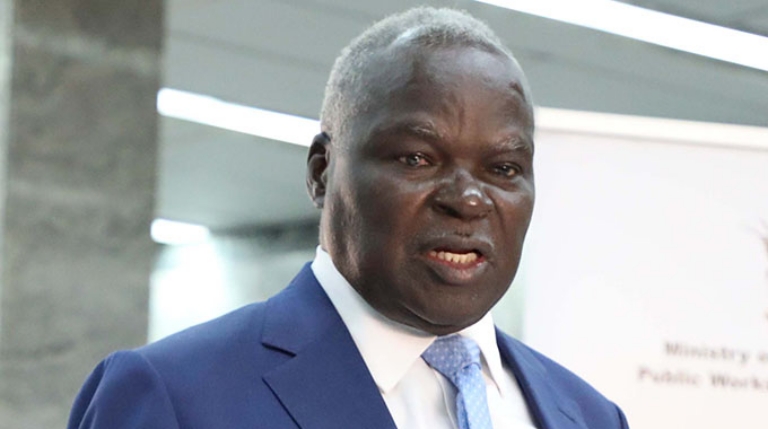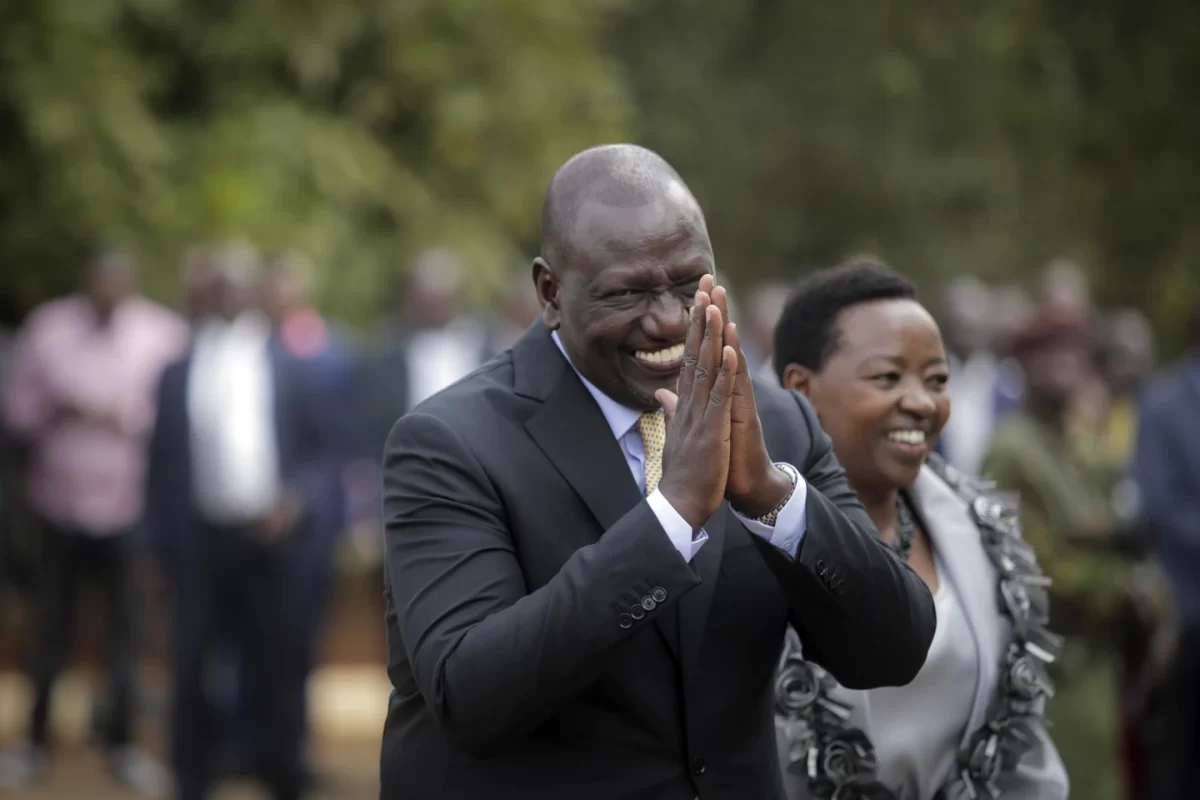HARARE – Prosecutor General Kumbirai Hodzi has been petitioned to charge finance minister Mthuli Ncube with criminal abuse of office over a series of actions that have caused Zimbabweans financial losses in the billions of dollars.
Should he decline to prosecute the minister, activist Mfundo Mlilo – who in September won a court challenge to Ncube’s illegal imposition of a 2 percent tax on electronic transactions – says he has instructed prominent lawyer Advocate Thabani Mpofu to initiate a private prosecution.
Ncube unlawfully pilfered US$800 million from the public using an illegal tax and lulled Zimbabweans into suffering huge financial losses through misrepresenting that over $9 billion in RTGS balances would be converted into United States dollars, Mlilo says in a criminal complaint sent to Hodzi through his lawyers, Mafume Law Chambers.
The minister had also broken the law by attempting to hire William Mutumanje, also known as Acie Lumumba, as the chairman of the finance ministry’s Communications Task Force, Mlilo argues.
The complaint outlines four potential charges of criminal abuse of office against Ncube, including a failure to act on the abuse of the foreign currency allocation system at the Reserve Bank of Zimbabwe.
“As you are aware, our client obtained a judgement against the above-mentioned individual (Ncube) which judgment is extant. Our client is alarmed by the nonchalant response to the judgement by the said individual which has compelled him to file this criminal complaint. Our client has observed the behaviour of the said individual on many instances and he has noticed a palpable disregard of the law…,” Mlilo’s lawyers said in an October 24 letter to Hodzi.
The lawyers asked Hodzi to “perform your constitutional duty to prosecute the criminal complaints contained herein”, or in the event that he elects not to pursue the complaint to issue a ‘Certificate Nolle Prosequi’ – a declaration confirming he will not prosecute which would allow Mlilo to pursue a private prosecution.
The lawyers say the Zimbabwean public is “in great danger from the propensity by Ncube to implement measures outside the law, and then change the law to suit the criminality as an afterthought”, adding: “In a constitutional democracy, it is critical that everyone should understand that they are not above the law.”
In an affidavit accompanying his complaint, Mlilo outlined four counts of alleged corruption by Ncube, the centrepiece of which is the imposition of the tax which the High Court has already ruled was unlawful at the time when it was effected last October.
“In respect of count one, the allegations are that the accused person in breach of an extant law, being section 22G of the Finance Act (Chapter 23:04) as read together with section 36G of the Income Tax Act which regulated Intermediate Money Transfer Tax on electronic money transactions at the lawful 5 cents tax per transaction, sought to impose a punitive, unlawful and arbitrary 2 percent tax on all electronic transactions of US$10 and above. This he did on the 1st of October 2018 in terms of a Policy Statement,” Mlilo explains in his affidavit.
“On the 13th of October 2018, the accused person purported to promulgate Finance (Rate and Incidence of Intermediated Money Transfer Tax) Regulations S.I 205 of 2018 by which he sought to amend primary legislation being section 22G of the Finance Act (Chapter 23:04) as read together with section 36G of the Income Tax Act.
“Having made these unlawful interventions whose illegality he was well aware of, accused person pilfered from the people of Zimbabwe and to their irremediable prejudice, an average of USD$80,000,000-00 per month for a period of ten months.
“The accused person’s interventions were later declared unlawful by the High Court in terms of a written judgment of the High Court of Zimbabwe under judgment number HH-605-19.
“Arrogantly and in unbridled contempt of the High Court, the accused person authored a letter effectively advising the nation that the judgment was a brutum fulmen. The letter also reflects the fact that the accused person has always known and accepts the incorrectness of his position in the imposition of the 2 percent tax.
“The actions of the accused person in unlawfully imposing a financial burden on the people of Zimbabwe, in purporting to legislate as though he were Parliament and in making use of public power in giving effect to an illegality constitutes an abuse of power and disadvantages the people of Zimbabwe to a material extent. Making use of his illegal interventions which were primarily aimed at the poor, the accused person purloined from the people of Zimbabwe an average of USD$80,000,000-00 per month.
“Accused person had no lawful right to act in the way he did and to cause the suffering of the people of Zimbabwe in doing so.”
On the second count, Mlilo charges that Ncube broke the law by appointing Mutumanje acted contrary to his duty under the Public Procurement and Disposal of Public Assets Act[Cap 22:23] to ensure no person is appointed by the State outside the auspices of the Civil Service Commission.
“In doing so, accused person showed favour to William Mutumanje (Acie Lumumba) in that he accorded him a privilege which was not available to any other Zimbabwean and did so in breach of competitive standards set out under law. By the same token, the accused person showed disfavour to the generality of Zimbabweans who might have been interested in applying for that job,” Mlilo explains.
On the third count, Mlilo claims that Ncube appointed Mutumanje “for the purpose of naming and shaming certain officials of the Reserve Bank of Zimbabwe and private individuals who were involved in corrupt activities particularly in the area of foreign currency allocation for purposes of fuel purchase and the acquisition of foreign currency on the parallel market.”
“Despite being obliged by law as minister of government responsible for Finance to report such malpractices to law enforcement officials, accused person in breach of his duties refrained from doing so and has not done so to date… Accused person by his omission acted contrary to the interests of the people of Zimbabwe and thus showed disfavour to them and at the same time showing favour to those implicated in criminality,” Mlilo adds.
The fourth and final complaint relates to the finance ministry’s repeated assurances that the RTGS balances and bond notes would be redeemable in United States dollars at a rate of 1:1 prior to any currency changes.
The government, in a surprise move in February, allowed the RTGS/bond note surrogate currency to float against the US dollar, beginning a hemorrhage on the bank balances of Zimbabweans which culminated in the relaunch of the Zimbabwe dollar in June as the sole legal tender, without the US dollar conversion taking place. Zimbabweans had billions in the value of their investments, bank balances and pensions wiped out as the new currency rapidly declined.
Mlilo says as the government minister responsible for finance, Ncube “is ultimately responsible for protecting the economy and the country’s currency and for building confidence in respect thereto.”
“The government of Zimbabwe had taken the position that the country’s surrogate currency, the bond note, was deemed to be at par with the United States dollar. It was however, accepted that there was need for the surrogate currency to be supported by the proper United States dollars and for Nostro accounts to be ring fenced and protected,” Mlilo says.
“The accused person understood that the position he publicly communicated on issues of currency had a direct impact on the confidence reposed by the public in the country’s currency of trade. Falsely, the accused person announced that the Afrexim bank had extended a facility which would have stabilised both the economy and the currency of trade. That meant that value held by the people of Zimbabwe would in the foreseeable future be protected and preserved unless there was a drastic change in economic policies. The assurance was one that people could and did legitimately rely on coming as it did from a public official heading the ministry of finance.
“As a result of the false assurance, the people of Zimbabwe took decisions which were based on the fact that the value of the surrogate currency would be preserved at par with the United States dollar. Contracts were concluded and obligations were incurred on that understanding and assurance. Further, many monetary investments were made.
“In giving this false assurance and news, the accused person intended the people of Zimbabwe to act on the misrepresentation to their prejudice. In the event they did and lost full value of all their investments and the contracts they concluded.
“The accused person’s actions were unlawful, fraudulent and he had no right to engage in their pursuit.”
















